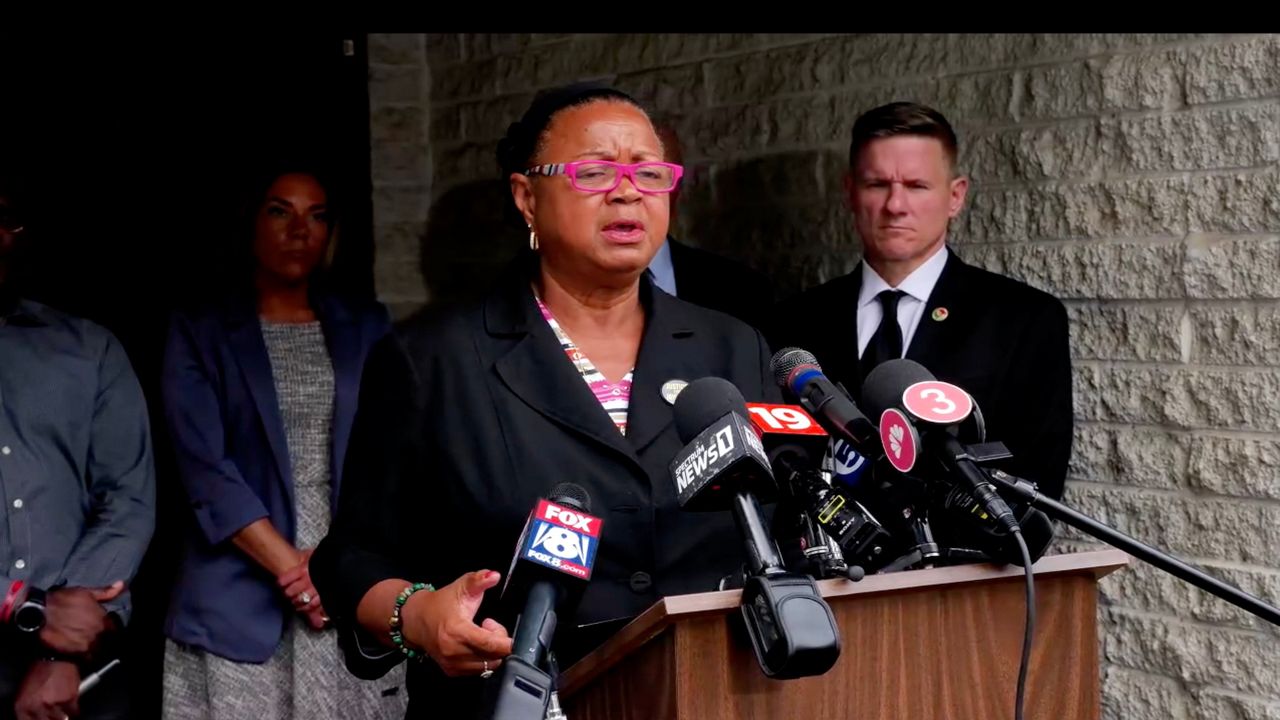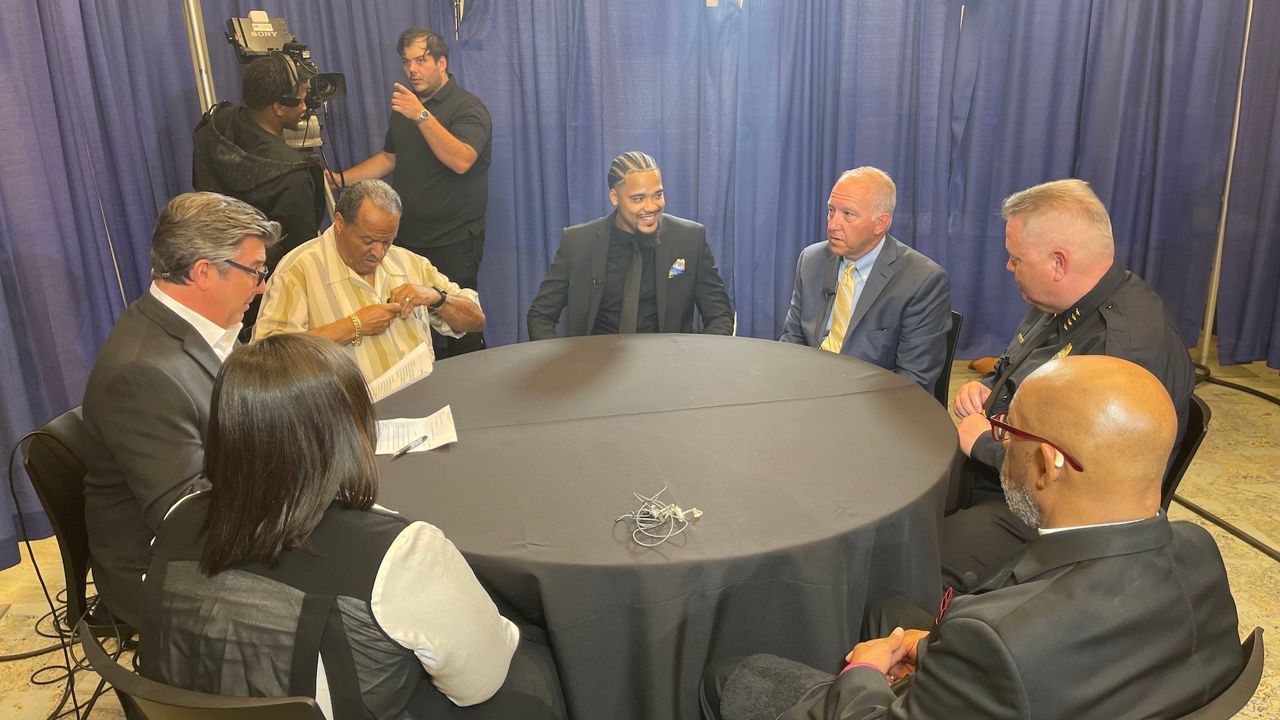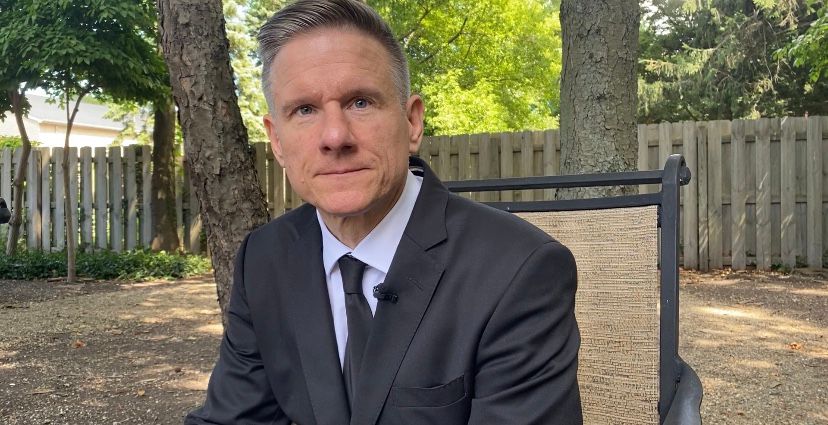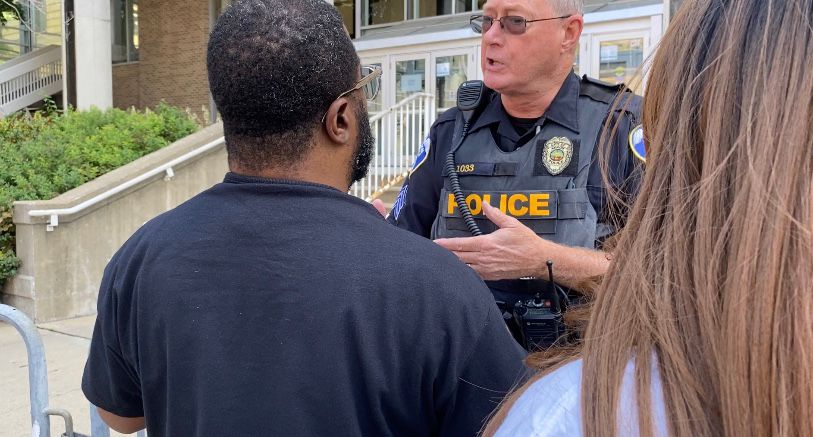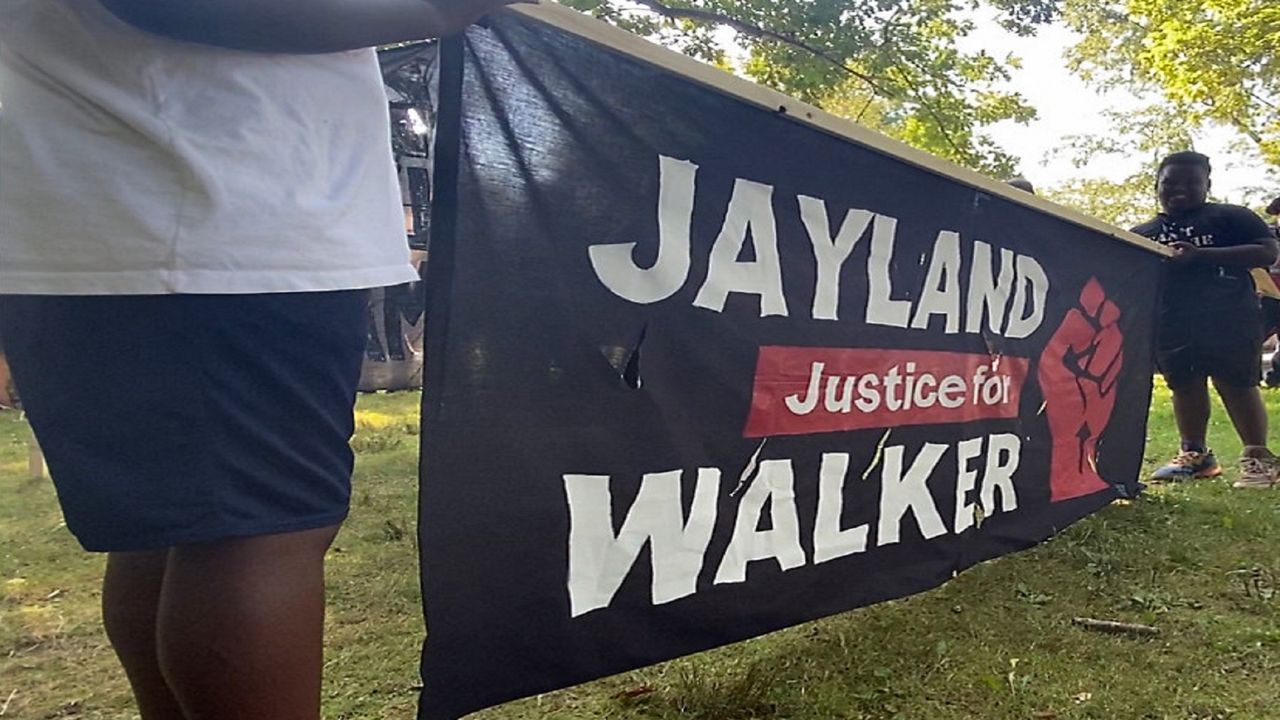AKRON, Ohio — Akron is now on track to create a long-awaited citizen review board to provide oversight of the police department.
The city has talked about such a board for years, officials said. In recent weeks, groups protesting the fatal police shooting of 25-year-old Jayland Walker have also called for a review board along with other police reforms.
Eight Akron police officers shot Walker more than 40 times after he led them on a chase, firing a weapon at them from his car, police said. Walker was unarmed when he was shot. The case is being investigated by the Attorney General’s Bureau of Criminal Investigation.
The question that now stands in the city, where protests have been ongoing since the shooting, is whether the citizen review board will be created via a city ordinance or as a charter amendment on Akron residents’ ballots this November.
As of Tuesday, both approaches are underway.
Mayor Dan Horrigan announced in a statement early Tuesday saying he plans to ask Akron City Council to approve a measure to create a Citizen Oversight Board for police through a city ordinance.
The proposed ordinance states the city’s long-term goal is to put the matter on ballots in 2023, so voters can shape the review board through a change to the city’s charter, Horrigan said.
But in the near term, the proposed review board would be created by City-Council approved ordinance, so it can be “a thoughtfully considered citizen oversight framework, which can be successfully implemented in Akron,” Horrigan said. He said the city had reviewed similar boards in many cities to come up with the proposed model.
The city’s Racial Equity and Social Justice Task Force — created in 2020 when the city declared racism a public health crisis — also recommended a review board for police oversight be created as part of a five-year plan the task force released earlier this year.
The RESJ task force recommended keeping a citizen review board apart from mayoral oversight, to ensure members wouldn’t face retaliation for disagreeing with city administration, the task force has said.
Creating the review board by charter amendment would ensure review board members could be removed only “for cause,” which means dereliction of duty or malfeasance in office, the task force said.
In July, Bishop Joey Johnson, RESJ task force chair, and Bill Rich, task force subcommittee on criminal justice chair, issued a joint statement reiterating the group’s stance on the charter amendment.
“…we believe that the civilian oversight board must be independent of mayoral control,” they wrote. “Without that independence, the board would not enjoy the level of trust and support on the part of the community that is essential to its success.”
On Tuesday afternoon, Walker family attorneys and Black city leaders gathered to coment on the city’s handling of recently released video captured on the night of the shooting.
The group also announced a petition had been taken to the city clerk’s office earlier in the day bearing more than 7,000 signatures in support of a ballot issue for a charter amendment.
According to the Board of Elections, 2,678 valid signatures are needed to put the issue on November ballots. If there are enough valid signatures and the issue passes in November, the charter amendment will override a city ordinance.
“We believe this will help change and improve police community relations,” said NAACP President Judi Jill. “It has a portion in there to increase police training and ensure that no matter who is the mayor, or who is a police chief, or who is on city council, that the citizen review board will be a part of the charter and a part of the Akron area as we move forward.”
Hill said police-community relations in Akron are broken and she is “sick and tired of being sick and tired.”
She emphasized that the ballot initiative submitted to the clerk was not carelessly assembled, and said she was proud of the work done to complete it.
“This is not a fly by night,” she said. “This was not something we just did in two minutes. We've been asking for this in the city of Akron for years. And we're sick and tired of asking. And so what we did was we put feet to the ground.”
Helping lead the petition drive is Rev. Raymond Greene of the Freedom Bloc. Greene referred to Akron police as a “murderous gang riding around our city terrorizing citizens of Akron.”
Green called for the community to continue supporting the group‘s efforts.
The newly released video is troubling for the Walker family and their attorneys because the city has promised transparency and accountability, the family’s attorneys said, but didn’t release the entirety of the video from the shooting until now.
The video picks up in the moments after the shooting, which revealed police turning off the sound and cameras on their body-worn equipment after they advised one another to “go blue.”
Video the city released in early July ended almost immediately after Walker had become motionless on the ground.
Bobby DiCello, the Walker family’s attorney, said police are supposed to be heroes.
“What is heroic about turning off your camera Superman?” he asked. “What is heroic about turning off your microphone, Wonder Woman?”
DiCello criticized the city for not talking to his team and for not publicly apologizing to the Walker family.
“Please set an example of transparency and accountability, of integrity,” he said.





